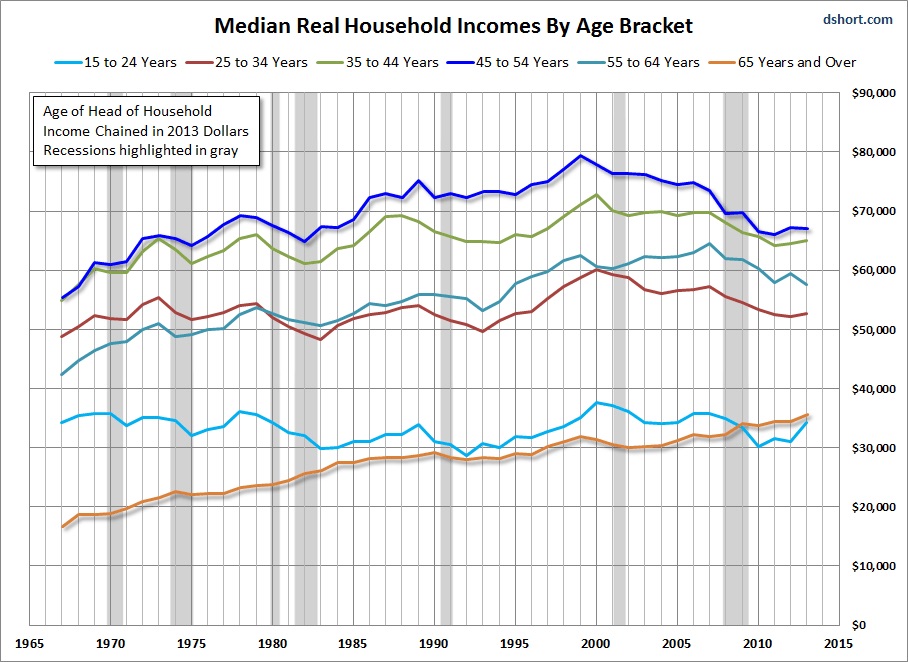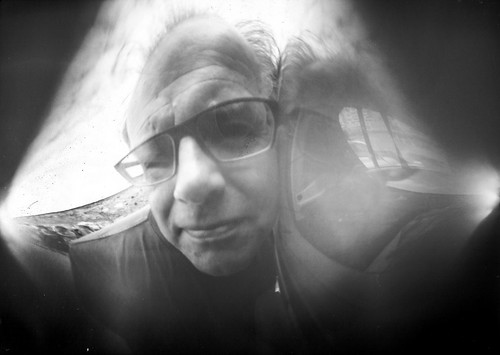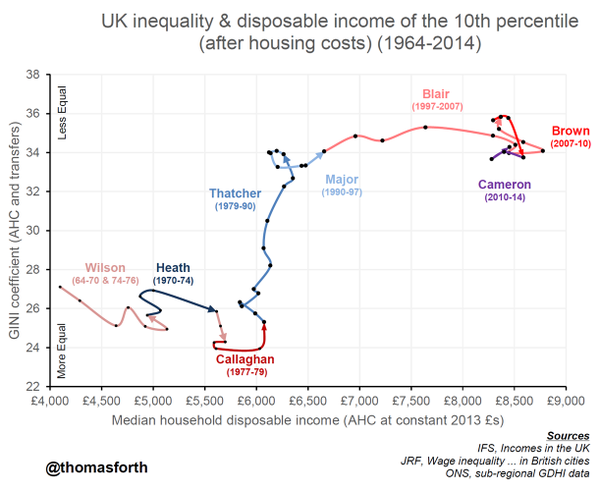I’m lucky enough to live reasonably close to [Lacock Abbey](http://www.nationaltrust.org.uk/lacock/things-to-see-and-do/fox-talbot-museum/), home of the co-inventor of modern photography, [William Henry Fox Talbot](https://en.wikipedia.org/wiki/Henry_Fox_Talbot). Last year, during a visit, we found that Justin Quinnell was running a pinhole photography workshop that involved making cameras out of old beer cans (and taking pictures with them). We also made beer can cameras using fogged photographic paper to take six-month exposures, though sadly my camera failed to survive its time on the Bristol philosophy department roof. There’s lots of interest on [Justin’s site](http://www.pinholephotography.org/). Here’s [Justin’s YouTube instructions](https://www.youtube.com/watch?v=Hp-JMGQUAMA) for how to make your own, delivered in his unique pedagogical style. A lot of fun, for children of all ages!
From the monthly archives:
August 2015
Yes. This has been the latest in our series “Short Answers to Misconceived Questions”.
Actually, there’s a longer answer over the fold, another extract from my book-in-progress Economics in Two Lessons. You can find a draft of the opening sections here.
This extract is a subsection of Part 2, in which I explore the implications of Lesson 1:
Market prices reflect and determine opportunity costs faced by consumers and producers.
The conclusion is
if the damage bill measures the cost of restoring assets to their pre-disaster condition, it is also equal to the opportunity cost of the disaster, namely the goods and services that would otherwise have been produced.
I’ll be interested to see whether readers’ reaction is “That’s obvious” or “That’s obviously wrong”, assuming of course that you have any reaction at all. As always, civil comments of all kinds are welcome, particularly constructive criticism.
In a stunning turn of events tonight at the University of Illinois at Urbana-Champaign, the chancellor who hired the professor, then fired the professor by claiming he had never been hired in the first place; who resigned in the wake of an ethics scandal over her use of a personal email account (and destruction of emails) in order to hide evidence related to pending litigation over the firing of the professor; whose resignation was rejected by the UI Board of Trustees so that they could formally fire her instead (and thereby avoid paying her a $400,000 bonus previously agreed upon), is now resubmitting her resignation to UIUC and consulting with lawyers in order to consider her legal options and to protect her reputation from the very university that, under her leadership, systematically destroyed the reputation of the professor she fired by claiming he had never been hired in the first place.
Let’s back up. [click to continue…]
A really interesting chart, via Tom Forth on that Twitter. It plots inequality in the UK against the income of the poorest 10%, as a time series.
This is a perfect application of interocular trauma econometrics – it hits you right between the eyes. It’s all up-and-down or left-and-right. The sort of thing that generates the difficult cases for liberal political philosophy – increases in inequality which nevertheless benefited the worst-off, which would have showed up as a southwest-to-northeast upward slope – never happened.
Steve Drummond has a great interview with Diana Hess and Paula McAvoy about their brilliant book [1], The Political Classroom: Evidence and Ethics in Democratic Education
The study explores the way high school social studies teach controversial issues in the classroom, and uses extensive survey and interview data both to examine the ethical issues that teachers feel that they face. They look at how teachers decide which topics count as controversial, how teachers think about dealing with topics that are sensitive within the classroom (eg, how do you discuss the morality of same-sex marriage in a way that does not shut down debate, when you know that some students are closeted homosexuals?); and how do teachers decide whether they disclose their own views — and what do students think about those decisions? The empirical findings are fascinating: for example, students believe that teacher disclosure has no effect on their own beliefs, but think it has effects on the beliefs of their peers; and students in the same classroom disagree about whether their teacher discloses, but tend to approve of what they believe their teacher does with respect to disclosure (I’ve heard the authors refer to this phenomenon as “I like what my like-able teacher does”). The most fascinating case study is of a (brilliant, it seems to me) (conservative) evangelical teacher who works in a (conservative) evangelical Christian school, and really, deeply, challenges his students in ways that, for example, I doubt that many of the secular liberal students are challenged at my own institutions. But it is not just an empirical study — they deal subtly with the difficult philosophical issues of what the aims should be of teaching controversial issues and the ethics of disclosure, without being unduly prescriptive or judgmental. Although the book is about high school teaching, I think it is an invaluable resource for everyone at the college level who teaches about controversial issues, and would recommend colleagues who, like me, teach ethics and applied ethics classes, developing reading groups using the book. Here is my discussion from last year of whether teachers of controversial issues should disclose their opinions to students. Anyway, this book is essential reading for anybody, at any level, who teachers controversial issues.
[1] Pretty full disclosure: As of a week ago Hess is Dean of the School of Education with which I am affiliated, and was previously Vice President of the Spencer Foundation, where I was, for most of that time, a Senior Program Advisor; McAvoy also worked at Spencer while I was an SPA there, and is now Program Director of the Center for Ethics and Education, of which I am Co-Director. I helped pull together deliberations about the content when the book was in progress, and read several draft. Also, I wrote the Afterword. Strangely, I recently attended the wedding of a recent UW graduate who was, when in high school, one of the 1001 students in the study (McAvoy presented about the study in one of my classes, and the said student, mentioned here, realised that she was a subject).
It looks like I’m going to be out 100 quid — when the first poll came out I bet my dad (a Labour Party member of much less long standing than lots of people assume, but, still, long enough that it would be entirely decent for him to vote in the election) that Corbyn would not win — that, once faced with the actual decision, people who say they would vote for him, would pull back. The latest yougov poll shows Corbyn winning on the first round, and Peter Kellner says “I would personally be astonished if Mr Corbyn does not end up Labour’s leader.”
Personally, I have found the newspaper reporting and media commentary about the leadership election entirely unenlightening. The frequent comparisons with the 1980s are idiotic: Corbyn does not represent, as Benn (who never stood for the leadership) did, a massive socialist movement within and outside the party that had been building for 2 decades. He also lacks any, let alone extensive, leadership experience in government or opposition: many of the people who will, apparently, vote for him, did not know who he was 3 months ago. Only 5 years ago the (more impressive than Corbyn) leftwing candidate was eliminated almost immediately in what was, effectively, a two-horse race between two candidates who shared a last name and were — in terms of the political views (though certainly not their political or leadership experience or abilities) — almost identically right of the center of where the party has traditionally been. I agree with the frequently made point that it is hard to see a Labour Party led by Corbyn winning a general election outright (though it might have a chance of increasing the number of seats, by eating into the SNP bloc in Scotland): but whereas in the 1980s plenty of people believed that if only it were left wing enough Labour could win the next general election, I don’t think anyone believes that this time. Brian Eno can plausibly say that “unelectability” is not an issue in this leadership race because, absent developments over which the Labour Party has no control (eg (an unlikely) further surge of UKIP support splitting the right-wing vote enough to deprive Tories of massive numbers of seats) it is so difficult to see any of the candidates (or, frankly, almost anyone in the Parliamentary party) leading Labour to outright victory, and not difficult to see at least two of the candidates being worse.
So. I’m not telling you who I would vote for (its many years since I was, briefly, a member of the party, and although the distinctly odd voting system seems to allow anyone in the world to vote, I’m not going to), and I’m certainly not telling you who my dad and step-mum will be voting for: but I am curious what it looks like on the ground, why people are voting for Corbyn, what people think will happen in the next 2 to 3 years, etc. Please be polite to one another in this forum — I don’t mind how rude you are to each other in party meetings, because I don’t believe for a second you will be as rude as people were in the 80’s).
BY the way: without gooogling, can you name the last time the the candidate who was unambiguously the most left-wing became leader? Its been a very rare event.
John K. Wilson has examined all of the emails that were released this past Friday: not merely the emails regarding the Salaita case, but also the emails dealing with two other cases, which Wilson makes a strong argument are related to the UIUC’s handling of the Salaita case. Wilson’s piece is long and well worth reading, but lest readers overlook three astonishing quotes that Wilson has uncovered, which together comprise a rough definition of what academic freedom at UIUC might mean, I thought I’d highlight them here.
First, education professor Nicholas Burbules, a real piece of work as far as I can see, has emerged in the last few days as one of Chancellor Wise’s close confidants on the faculty. He seems to fancy himself, in these writings at least, as a kind of Machiavellian consigliere. But where Machiavelli’s counselor knew how to mould the prince to his own purposes, Burbules reminds one of nothing so much as those hapless Cold War intellectuals who thought they were taming and influencing the American state—only to discover, after it was too late, that it was it that was taming and influencing them. Christopher Lasch aptly characterized the farce of these buffoons more than a half-century ago:
In our time intellectuals are fascinated by conspiracy and intrigue, even as they celebrate the “free marketplace of ideas”…They long to be on the inside of things; they want to share the secrets ordinary people are not permitted to hear.
What drives these courtiers of knowledge “into the service of the men in power,” Lasch concluded, is “a haunting suspicion that history belongs to men of action and that men of ideas are powerless in a world that has no use for philosophy.”
Enter Professor Burbules. On February 14, 2014, Burbules advises Wise:
A related policy might address the question of “controversial” hires—this is murkier, because people’s ideas of what is controversial will differ. But a crude rule of thumb is, if you think someone’s name is going to end up on the front page of the newspaper as a U of I employee, you can’t make that decision on your own say so. You need to get some higher level review and approval.
Notice that Professor Burbules doesn’t question the notion that controversial hires are bad or problematic hires. The only question he’s willing to entertain is how to define controversial. It’s a tough question. So he comes up with the front-page rule. But since universities are often quite happy to have their faculty on the front page of the newspaper—when they’ve made a new scientific discovery or are serving on gubernatorial task forces or advising presidents—Professor Burbules recommends that the controversial cases be kicked upstairs. The higher-up’s will decide who is and is not safe to teach in the academy. Not on the basis of a candidate’s scholarship or talent, but on the basis of whether or not the higher-up’s are comfortable with the amount and type of controversy she might bring to the university.
But, as if aware of what a craven standard this in fact is, Burbules decides to look for “a more principled statement of what the U of I stands for.” Here we come to our second astonishing statement:
We welcome the widest possible range of viewpoints and positions, but not all positions. And that there are some things that are not consistent with our values.
Notice that Burbules doesn’t say that the university should exclude positions that have been proven to be fraudulent or false (e.g., the earth is flat, the sun revolves around the earth, etc.) No, what Burbules thinks is excludable are viewpoints and positions “that are not consistent with our values.” Now, you might instantly get suspicious here: one would have thought that if what marks a university is the freedom to pursue multiple and conflicting viewpoints and positions, it would be tough to get a more than thin consensus on what “our values” are.  What are those values? Who gets to define them? Burbules doesn’t say. So we’re left with that “kick it upstairs” standard: the higher-ups get to define our values.
So let’s now go to the higher ups. And here we come to our third and final astonishing statement. From about as higher up as it gets: Chris Kennedy, chairman of the UIUC Board of Trustees.
The University, as the state’s public university, needs to, in many ways, reflect the values of the state.
So that’s it: at the University of Illinois at Urbana-Champaign, academic freedom is the freedom to pursue the widest possible range of viewpoints and positions, except for those that are not consistent with our values, which must reflect the values of the state.
This the marketplace of ideas from which Chancellor Wise was buying her wares.
In teaching Nietzsche I joke he was a Swiss philosopher – like Rousseau and Calvin. (Like them, he believed autonomy is paramount and impossible. “Girls, girls, you’re both pretty!”) The biographical basis is not just that he taught at the University of Basel and got a small medical disability pension from that institution. A Swiss institution funded his major work, so credit is due. The basis is also that he renounced his Prussian citizenship when he took up his professorship in 1869. This is a fun fact about our Fred. He was stateless for the last 30 years of his life. Citizen of no modern European nation. I’m sure that was just how he wanted it. But this morning I was thinking: it fits oddly with one fact. In 1870 he was a volunteer medical orderly in the Prussian army. He was at the Battle of Metz. So he first renounced his citizenship, then participated (didn’t fight) in the Franco-Prussian War. I had transposed that order in my mind, because it made more sense the other way. Now, checking the timeline not just on Wikipedia but in Safranski’s biography … yep, renounced citizenship first. Curious. Oh, well, it’s traditional for the Swiss to help put folks back together after the battle. I’m curious now whether Nietzsche was officially attached to the Prussian army, as medical orderly, even though he had renounced his citizenship. I haven’t actually read any biographies of him for a while; details slip.
‘I don’t have much time to read. When I do, I want to learn something. So I don’t read novels.’
The only unusual thing about this sentiment, printed in a recent issue of the FT’s odious How to Spend It, is that it was expressed by a woman. It’s usually male readers whose time is too precious to waste on made-up stories, and who can only learn about the world by ingesting facts. But facts can be neither here nor there, and so can experience.
When I went to Lagos, I couldn’t cope with its aggressive heat and humidity, the throat-sticking catch of mould in every air-conditioned breath, the sick thrill of traveling at speed in Nairobi-like traffic cohorts, the money-led evangelism and TV histrionics, the wildly coloured dresses fighting back and winning against the pitiless, equatorial sun.
I was working for the World Bank so I knew a lot of facts about Nigeria’s economy. I was familiar with its resource wealth and corruption, its north-south divide, its hyperactive diaspora. But those facts could only make the place real in the same attenuated way an encyclopaedia entry approximates a city or a gene sequence conjures a human child.
It was a mostly solo work trip that had taken in the eerie lawfulness of Kigali the week before – the only African city I’ve been in where moped taxis insist on helmets – and ended in a five-day battle of wits with a fixer / sexual opportunist I depended on to get me around Ethiopia’s Oromia province and back to Addis for a Friday night flight. My task was to gather photos and success stories to populate a year or two’s worth of brochures, presentations and assorted donor fodder.
Everywhere else on that trip, people talked about Nigeria. In Kenya, it was grudging admiration for Nigerians’ energy and sharp business practice. In Rwanda, people said Nigerian soap operas were the only ones worth watching. Even in far away Ethiopia, some women wore, or just talked about daring to wear the typically bright Nigerian fabrics.
But Lagos was the only city I have ever disliked on sight, the only airport/taxi interface I’ve crossed over feeling viscerally uneasy. It was too bright, too hot, too loud, too quick. It rattles the nerve-endings, razzing the brain like a migraine just before it bursts. As hard as I tried to just go with it, I couldn’t get out of my white, female body, my rational and irrational fears.
My loss.
[click to continue…]
The Chicago Tribune reports today that UIUC was forced to release 1100 pages of emails from Chancellor Wise, many of them from her personal email account, many of them related to the Steven Salaita case. According to a statement from UIUC:
A desire to maintain confidentiality on certain sensitive University-related topics was one reason personal email accounts were used to communicate about these topics. Some emails suggested that individuals were encouraged to use personal email accounts for communicating on such topics.
The statement may be referring to this email from Wise, on September 18, 2014. [click to continue…]
Big news out of the University of Illinois at Urbana-Champaign today.
First, a federal judge firmly rejected UIUC’s argument that it never hired Steven Salaita because the Board of Trustees hadn’t yet given its final seal of approval at the time of his firing last year. According to Judge Henry Leinenweber of the US District Court for the Northern District of Illinois (a Reagan appointee):
If the court accepted the university’s argument, the entire American academic hiring process as it now operates would cease to exist, because no professor would resign a tenure position, move states, and start teaching at a new college based on an ‘offer’ that was absolutely meaningless until after the semester already started.
Back in May, to squeals from some commenters, I observed that “within less than a week of coming to power, the new British government has made financial threats or legislative proposals with the following effects:
* [to intimidate independent journalism](http://www.telegraph.co.uk/culture/tvandradio/bbc/11598450/Tories-go-to-war-with-the-BBC.html)
* [to make legal strike action impossible](http://www.bbc.co.uk/news/business-32702585)
* [to criminalize dissent](http://www.bbc.co.uk/news/uk-politics-32714802)
* [to increase state surveillance of citizens](http://www.theguardian.com/politics/2015/may/09/theresa-may-revive-snoopers-charter-lib-dem-brakes-off-privacy-election)
* [to block access to legal remedies against the abuse of state power](http://www.theguardian.com/politics/2015/may/10/michael-gove-to-proceed-with-tories-plans-to-scrap-human-rights-act) .”
To this list we can now add
* [to deprive its principal electoral opponents of their finances](http://www.theguardian.com/politics/2015/may/27/labour-funding-hit-change-political-levy-bill)
* [to cripple public-sector union finances](http://www.theguardian.com/politics/2015/aug/06/public-sector-workers-stopped-automatically-union-subscriptions-pay-cheques)
* [to strip the electoral roll of non-Tory voters and to ensure boundary changes that under-represent economically deprived areas](http://www.theguardian.com/politics/2015/aug/05/the-gaping-hole-in-the-voter-registration-changes)
In short, the British government is acting so as to make it as hard as possible for opponents of its intended changes to the state to oppose them by voice, by collective action, by exercising legal rights and in the political arena. Taken together, the systematic and comprehensive attention the Conservatives are giving to closing off avenues of opposition leaves the UK drifting in the direction of those states that are nominally democratic, but where the political system strongly favours the incumbent, states such as Russia, Hungary, Turkey. Hyperbole?
For a generation (fifteen years) or more I’ve been writing and rewriting the same piece about the silliness of the “generation game”, the idea that one’s year of birth matters more than class, gender or race in determining life outcomes and attitudes. But this is a zombie idea that can never be killed.
Stephen Rattner in the New York Times is the latest example, with a piece showing that US Millennials (those born after 1980) are doing much worse than previous generations at the same age, despite higher levels of education. Rattner notes the role of the recession, now nearly a decade old, but then jumps to the conclusion that it is the Baby Boomers, as a group, who are to blame. His only evidence for this is the long-discredited claim of a looming crisis in Social Security.
Rattner doesn’t present any evidence about the recent experience of non-Millennials, but his piece leaves the impression that the experience of doing worse than older cohorts at the same age is uniquely Millennial. So I thought I’d do his work for him, and dug out this graph prepared by Doug Short  As can be seen, the group suffering the biggest loss, relative to older cohorts at the same age, are those households with heads aged 45-54 in 2013, a mix of late Boomers (for aficianados, this group is called Generation Jones) and early X-ers. But the main point is that median household income is falling for all groups except the 65+ cohort (mostly called Silents in the generation game). Part of this is due to declining household size, but (IIRC) household size has stabilized recently as forming a new household has become less affordable.
As can be seen, the group suffering the biggest loss, relative to older cohorts at the same age, are those households with heads aged 45-54 in 2013, a mix of late Boomers (for aficianados, this group is called Generation Jones) and early X-ers. But the main point is that median household income is falling for all groups except the 65+ cohort (mostly called Silents in the generation game). Part of this is due to declining household size, but (IIRC) household size has stabilized recently as forming a new household has become less affordable.
Rattner doesn’t mention, even once, the obvious and well-known explanation for the fact that median income is falling while mean income rises. This can only occur if the distribution of income is becoming more skewed, with the top tail (the 1 per cent) benefiting at the expense of everyone else.
The failure of talks in Maui last weeks to reach final agreement on the Trans Pacific Partnership Agreement raises new, if slim, hope that this corporate wishlist may not be delivered after all. Friday was the last chance to get a deal that could be pushed through the US Congress before 2016, when Presidential campaign politics might disrupt everything. If that happened, and the new President opposed the deal it might never happen.
Although there were a bunch of issues that prevented a final deal, the biggest one was the demand for new protection measures for US pharmaceuticals (typical of what are absurdly still called Free Trade Agreements), and the biggest single obstacle was the attitude of an obscure legislative chamber, the Australian Senate. This piece in Inside Story gives some of the background.



